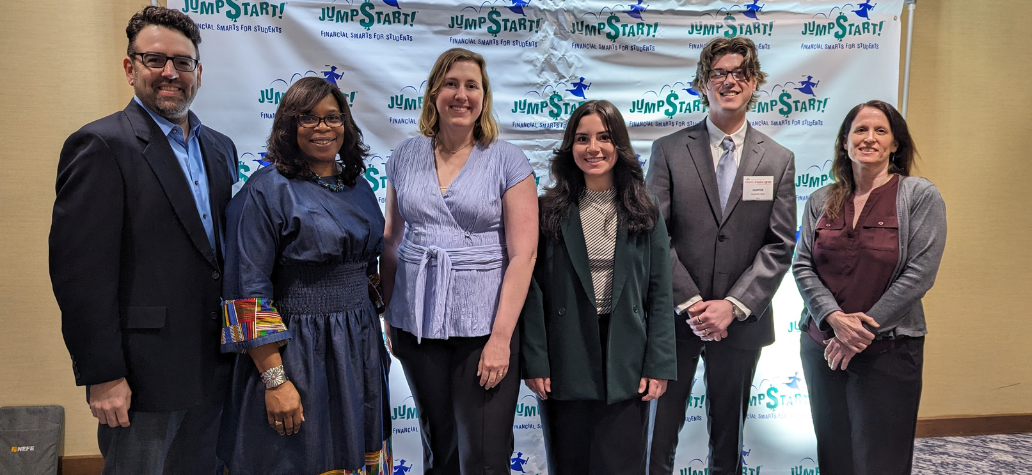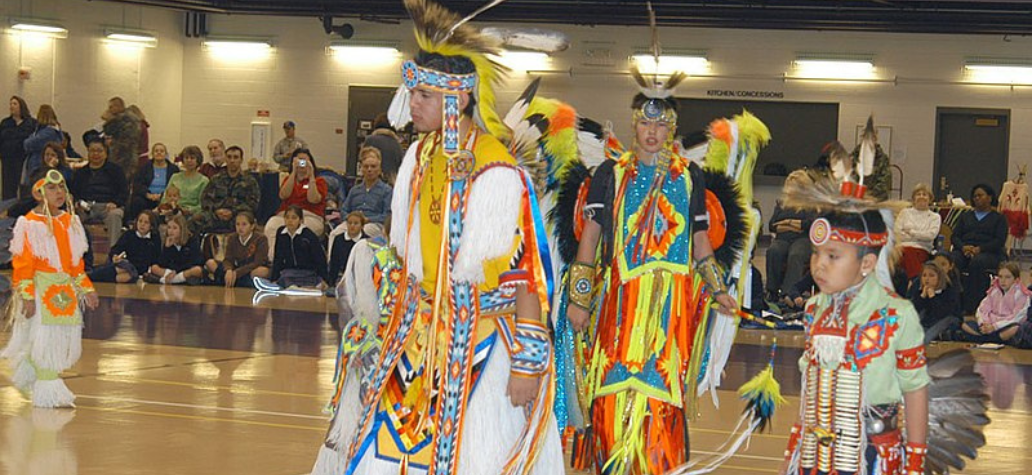Sometimes referred to as Financial Capability Month, Financial Literacy Month has evolved over 20 years from its roots as Youth Financial Literacy Day pioneered by the National Endowment for Financial Education (NEFE) and reflects a broader approach to all the dynamics that determine financial well-being. Throughout April, NEFE and its partners amplified efforts to promote financial literacy and education. We’ve celebrated and recognized the achievements in our field while acknowledging the ongoing challenges to economic access. This recap highlights key events and initiatives from this past month.
On April 17, the U.S. House of Representatives and the U.S. Senate introduced proclamations promoting financial literacy and Financial Capability Month. These announcements underscore the need for effective and equitable access to financial education on the federal level. Congresswoman Joyce Beatty (D-Ohio) and Congresswoman Young Kim (R-Calif.) are leading these efforts on the House side through the Financial Literacy and Wealth Creation Caucus, and Sen. Tim Scott (R-S.C.) and Sen. Jack Reed (D-R.I.) are leading in the Senate. These proclamations signal a bipartisan commitment to promoting financial education and represent a step toward a more inclusive financial system, ensuring everyone, regardless of background or identity, has access to quality financial products and services. I applaud the efforts of our government leaders.
Advancing K-12 Education Requirements
Financial education is a topic that transcends political divisions, emphasizing individual empowerment to take control of financial futures over partisan stances. The collaborative spirit is reflected in the growing number of states moving K-12 policy requirements forward. Currently, 25 states have either implemented or are working to implement a graduation requirement for high school students, with a promising trend that more states are likely to follow. During Financial Capability Month, we published visual updates to our Policy and Advocacy page with the most up-to-date data on this issue. We remain ready to assist in this critical work by providing guidance and support as these states shape the future of financial education.
Expanding Research and Thought Leadership
Our research team has been hard at work. In April, we released data from our latest nationwide opinion poll on financial well-being, highlighted by 68% of respondents saying the current quality of their financial life is what they expected or better, while 69% state they are at least somewhat concerned that their money will last.
A recently funded scale validation project offers broad implications for financial education. It enables better measurement of financial literacy and assessment of education outcomes across diverse groups. It’s a significant step toward creating more effective and impactful financial education programs.
We announced new grants totaling nearly $410,000 to projects focused on underserved communities, specifically college students who face food insecurity and racial disparities in K-12 education. With these recent grantees, our total research grant funding projects have surpassed $6.7 million since we began funding projects in 2006, resulting in over 1,500 peer-reviewed research citations that have significantly advanced the depth of understanding of the influence and reach of effective financial education.
Prioritizing Diversity, Equity and Inclusion
Diversity, Equity and Inclusion (DEI) are at the forefront of our priorities. We’re taking significant steps forward in our DEI implementation plan. Michelle Samuels-Jones, Ed.D., who has overseen our equity work for nearly a year, hosted “Building Identity-Conscious Approaches to Financial Education” as part of our Financial Education Innovation & Impact webinar series. This webinar leads up to our convening on equity in financial education that will be hosted at Howard University in the coming months.
In addition, our visiting scholars are adding valuable insights into financial literacy and well-being, helping our field better understand the needs of different groups and tailor our programs accordingly. We’ve continued to showcase work focused on Native communities from our current visiting scholar, Stephanie Cote. Also, our past visiting scholar, Chloe B. McKenzie, who dedicates her study to examining and reforming financial education specifically among women of color, will be featured in an upcoming podcast series on financial trauma and nonparticipation. We remain committed to creating a more inclusive and equitable environment for everyone in our community.
A Look Ahead
April marks six months until the start of our Financial Education Innovation & Impact Summit, scheduled for October 8-10 in Denver. Registration for the event is now open.
The Summit will be a gathering of thought leaders and advocates who will bring energy, new ideas and a meaningful focus on outcomes and best practices in financial education. NEFE has identified the areas of access, quality and impact for continued progress:
- Access: Ease with which all people can obtain financial education in a way that accommodates different life circumstances, as well as how technology improves a person’s ability to find education and information.
- Quality: The caliber of financial education materials and the mechanisms used to deploy them; the degree to which education adjusts for cultural, economic, racial and geographic differences; and the field’s integration of nontraditional educational methods and patterns of information consumption.
- Impact: The success with which the industry is advancing financial well-being outcomes among various groups with unique circumstances and needs, what the data show regarding successes and gaps, and the quality of assessments in analyzing outcomes.
NEFE also has outlined several calls to action for various stakeholders:
- Policymakers and Government Institutions: Implement non-partisan financial education programs, consult with teachers, and ensure thoughtful and evaluated implementation while investigating the actual costs of returns.
- Research Professionals and Organizations: Conduct large-scale national research on the long-term effects of financial education and improve research dissemination and translation with improved approaches in public policy and education interventions.
- Funders, Grantmakers and Foundations: Focus on areas where additional funding can make a significant impact, ensure evaluation support is adequately funded and share evaluation findings widely, providing support for research on culturally competent best practices for financial education.
This remains a pivotal time for financial education. With growing K-12 requirements, increased focus on equity and a robust research agenda, NEFE and its partners are leading the charge toward a more financially literate world. The goal is clear: financial education must work for everyone, providing the knowledge and skills needed to achieve financial success.
Stay updated on all our initiatives on NEFE.org. You can subscribe to our newsletter and follow us on our social media channels for the latest news and events.
Billy J. Hensley, Ph.D., is president and CEO of the National Endowment for Financial Education (NEFE), a nonprofit foundation that champions effective financial education. NEFE is the independent, centralizing voice providing leadership, research and collaboration to advance financial well-being.


